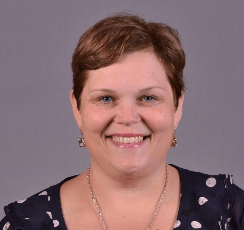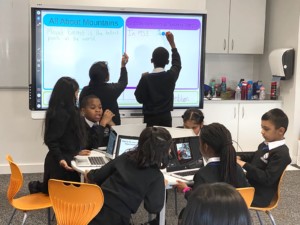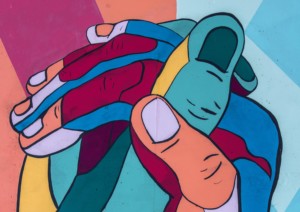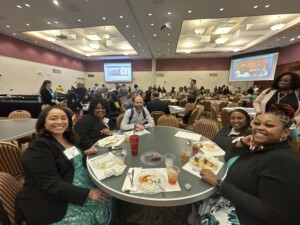Whistle While You Work

Snow White’s wicked stepmother’s sole intent to consult the mirror and check her reflection may have been considered an act of narcissism. Alice and Wonderland took a peek through the Looking Glass to learn experiences, make decisions, and pay attention to details matter. And though both are fairy tales, the reality for education today is to teach students towards their college and career goals. What have I learned along the way through my professional story? 1) Reflections are the proxy to a happily ever after. 2) Mentors are timely, caring, and a comforting irritant that may come in the form of a fairy godmother or 7 miners. 3) Goals keep you focused on what matters.
Reflections
Once upon a time, I was a first year teacher who avoided the mirror at the end of my day. After catching a glimpse and realizing how I looked like I had been run over by a Mack truck, I was mesmerized by the fact that my hair really could stand straight up on the top of my head. But, what surprised me more than the anti-gravity in my classroom was the fact that neither my students nor colleagues gave me any heads up. Similar to Cinderella, I pouted about not having an advocate or the ability to catch a break. A magic wand would have been perfect, but I am pretty sure that I would have wished myself out of the profession. Instead, I was forced into a determination of how to get it right. Reflection became an active part of my lesson planning.
Daily Questions throughout the lesson strengthened both my formative assessments and pace. I frequently asked a few key questions. “How do I know each student understands?” “What is the priority of today’s outcomes if a task requires more time?” Who looks and sounds like they are doing the most work?”
Planning Questions pointed me in the direction of the end. Beginning with the end in mind informed and enhanced the design of my workshops or units. Sticking to a few simple questions kept the lesson plan focused. “How do I want students to show what they know?” “How will students know what they know?” “What does the data tell me about the strengths of the class, areas needing improvement and scaffolds, and specific needs of individuals?”
Being focused expanded the opportunity for student engagement and ownership of the outcomes. Taking the time to ask the right questions designed a slipper that magically fit more feet than mine.
Mentors
I’ve determined throughout my twenty-one years in education that the right people will come along and sprinkle their fairy dust at the right time. I just had to learn to open my eyes, listen, accept the challenges, and be open to both feedback and change. I had to let go and trust in someone’s view of what I may need and their expertise. In short, I needed to follow the leader for a short time until I had the endurance and confidence for independence. Yes, the first year teacher pouted about not having an advocate worried, well ok, sometimes snubbed advice. Now as I reflect. Who did I think I was? I was Alice making some right decisions without knowing why they were correct, but making mistakes that were quite noticeable. I needed a White Rabbit and Cheshire Cat.
School years come and go. Colleagues bond with common experiences and goals, but mentors are permanent imprints on your professional heart, mind, and soul. As I began my reflection and brainstorming for this blog entry, I arrived at four mentor characteristics.
Miners dig into the problems right beside you. Though you may be in a slight panic, their light and sense of direction lead you through the correct tunnels. When the riches are discovered, they don’t race you to the jewels; rather, proudly observe as you tinker away to fill your bucket. The miners are your coaches.
Crickets know your every wish, but don’t do the showing of how. The cricket’s nurturing wisdom is shared in a series of tips, sayings, proverbs, and sometimes direct warnings. This type of mentor tends to be unassuming in your professional world, but words are powerful. They never say, “I told you so,” even when you don’t take their advice. Crickets know you are going to make mistakes. This mentor tends to be advisors.
White rabbits and Cheshire cats challenge your thinking in ways that may push you into a case of your own productive struggle. What I’ve admired about the rabbit is this mentor always models best practices. At first the behavior seems frantic and difficult to catch by observation, but with closer discussions and analysis, this mentor is a refined practitioner. The Cheshire cat pushes you to a point of frustration not because of a tendency to be sarcastic or elitist, but because answers are provided in a series of questions or riddles. This mentor knows you will come to your own answers because of the eagerness to learn. Their focus is to move you from good to great. This mentor is the expert practitioner.
Fairy godmothers watch with a careful eye, and only come to the rescue when absolutely necessary or when requested. These mentors often choose their mentees because they see the big P: Potential. They see the talent because knowledge, interest, and determination are evident. Fairy godmothers know skills can be crafted if the core foundations exist. These mentors are the teachers who tutored you after school when Calculus was making you cry, the principal that hired you for your first job, and the district administrator who asked you to be a teacher leader. These mentors are teachers and administrators; otherwise known as your peers- educators.
Goals
Because I often left school at my wit’s end every day of my first year, then it’s easy to conclude that my main goal was to get home and then sleep away the trauma. If you have also concluded that I did my lesson plans on the way to work the next morning, then you are on to something. My post traumatic syndrome continued until I realized one day that I was doing the teaching thing all wrong. My principal noticed my errors and sent me to three professional learning engagements. This decision put me on a new trajectory. There is no doubt without these three opportunities that I would have not stayed in the profession. The first seminar I attended taught me that everything starts and ends with classroom management. I left these sessions with a couple of additional questions. “Do my students know that they are going to learn something every day in my classroom?” “Do they know how to use the classroom and access the learning opportunities?” “Do I focus on positive or negative reinforcements more?” My second gift of instructional learning educated me on learning outcomes, instructional best practices, and formative assessments. My new found knowledge slid me into a mindset that everyone in the room deserves goals. In order to achieve the goals we had to have an action plan and know the rules of the game.
It’s not new information that goals need to be SMART, or specific, measurable, attainable, realistic, and timely. Nor is it uncommon to ensure that students are an active participant in not only the goal setting, but the conferencing to monitor their own progress. However, a friendly reminder is to start this task on day one. How can we achieve college and career if we don’t focus on every student’s end goal that is on his/her mind?
Earlier in the summer, I had the honor of leading a conference in sunny Orlando. The magical location was brought to life by 400 educators’ quest for community, updated instructional practices, and sharing success stories. Their voices and participation inspired me. They reminded me to stay focused, keep learning, and be proud of the work that we do. So, stay strong and enjoy Back to School. Take time to reflect. Find a new mentor that aligns to your next challenge. Become a mentor to one of our new colleagues. And, set your goals, but get to know others’ as well. Let’s all be happy in 2014-2015.

Noelle Morris is an Implementation Manager with Scholastic Achievement Partners. As an Implementation Manger, she ensures the thorough implementation of school improvement plans, monitoring both teacher and student understanding and achievement. As part of the original READ 180® implementation team, Noelle is a pro in scrutinizing data and building customized models to match the needs of each and every school and classroom she works with.






0 Comments
Leave a Comment
Your email address will not be published. All fields are required.